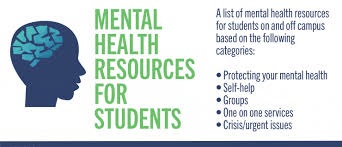
By
Barbara Gfellner
September 2021
Print Version
What you need to know
The COVID-19 pandemic caused an increase in mental health problems among young adults. It may also lead to further complications as it occurs at a time in their life when young people are negotiating identity issues in education, vocational pursuits, relationships, values, goals, and future planning. This research highlights cross-sequential findings on university students’ mental health before the pandemic and after its onset with the imposition of social and physical restrictions and classes taught by distance methods. As well, the way in which COVID-19 stress perceived by students is associated with psychological difficulties and dysfunctional identity development provides important directions to enhance the provision of support and counseling services.
Why this research is important
Research is accumulating on the negative effects of the COVID-19 pandemic on young adults’ physical and mental health and well-being. Furthermore, long-term adverse psychological consequences are expected to accrue (Fiorillo & Gorwood, 2020). Hence it is important to monitor the prevalence of mental health issues of young adults and determine how they may alter over time to provide appropriate supports for students’ well-being.
How this research was conducted
This research utilized data from an ongoing cross-sequential study on student adjustment and functioning at university. It enabled the comparison of students’ responses from the pre-COVID-19 (Fall 2019) cohort with those of the subsequent COVID-19 (Fall 2020) cohort. The survey included demographic information and standardized measures: the Identity Distress Scale (Berman et al., 2004) and the Counseling Center Assessment of Psychological Symptoms [CCAPS] (Locke et al., 2012). In addition, the COVID-19 cohort completed a measure of COVID-19 stress in which they rated on a 5-point scale “the extent to which s/he has been feeling nervous, anxious, on edge, or stress because of COVID-19.” Students completed online surveys offered through participating classes. Many students commented on the usefulness of the survey in raising awareness of relevant personal concerns.
What the researcher found
Each cohort included approximately 300 students (Mage = 19.5; SD = 2.1 years; 82% female, respectively). As expected, the COVID-19 cohort had elevated scores for psychological symptoms on the CCAPS-Distress Index and scales for Depression, General Anxiety, Social Anxiety, and Academic Distress. Lower alcohol and drug use was indicated by the Fall 2020 students, which may be due to the lack of social gatherings with friends and physical confinement. Similarly, the COVID-19 cohort scored higher on overall discomfort, distress, and upset with identity issues.
Most COVID-19 cohort students (61%) reported that they felt COVID-19 stress “often,” “frequently,” or “much of the time.” Significant correlations were found between psychological symptoms, identity distress, and perceived COVID-19 stress. Apart from direct effects between these variables, the analysis (using statistical techniques of Hayes, 2018) supported: (1) the indirect role of psychological symptoms as a mediator linking perceived COVID-19 stress with identity problems; (2) a significant interaction between perceived COVID-19 stress and psychological symptoms indicating a moderating influence; and (3) specifically, psychological symptoms moderating the relationship between perceived COVID-19 stress and identity distress among students with low to average but not for those with elevated psychological difficulties.
How this research can be used
These results indicate the need to focus on psychological symptoms and how they may change over the course of the pandemic to promote optimal identity development. The complexity of mental health concerns related to the pandemic are underscored. The findings indicate a need to focus on identity difficulties in supportive and counseling services for students with different psychological problems.
Acknowledgements
Special thanks to the students who participated in the survey and to the instructors who supported the project by encouraging class involvement. This contribution is greatly appreciated.
About the Researcher
Keywords
- COVID-19
- emerging adults
- identity distress
- psychological symptoms
Publications Based on the Research
Gfellner, B. M. (2021, June). Identity distress, COVID-19 stress, and psychological symptoms among university students. [Paper presentation]. Society for Research on Identity (SRIF). Virtual conference.
Gfellner, B. M. (2021, November). Psychological symptoms mediate perceived COVID-19 stress in identity distress. [Paper presentation]. Society for the Study of Emerging Adulthood (SSEA). Manuscripts are under review for publication.
Editor: Christiane Ramsey
Read more BU Research
Research at Brandon University follows comprehensive policies designed to safeguard ethics, to ensure academic integrity, to protect human and animal welfare and to prevent conflicts of interest.

